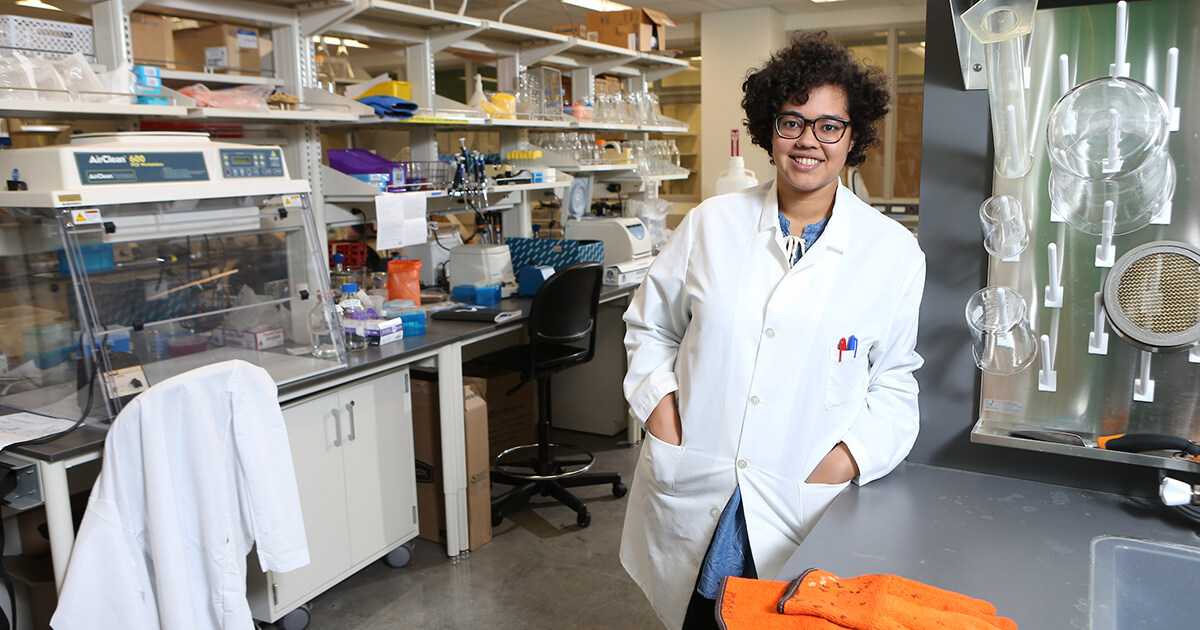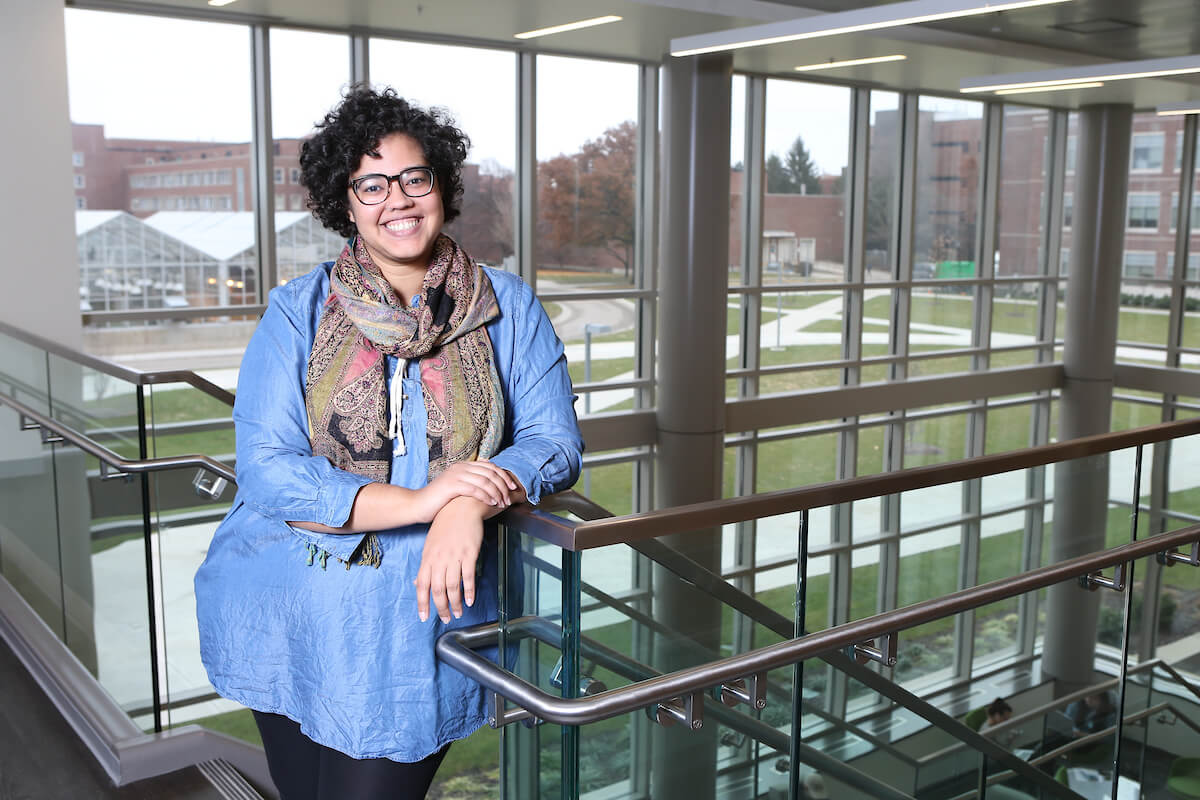Graduate Ag Research Spotlight: Carmen Wickware
CARMEN WICKWARE
“A lot of professors or PIs are interested in the role the microbiomes play. We have a lot of collaborative efforts going on.”
— Carmen Wickware, PhD student, Department of Animal Sciences

THE STUDENT
Carmen Wickware came from Terre Haute to Purdue as an undergraduate open to any discipline that fit her interest in chemistry. An advisor suggested food science, but Wickware’s only exposure to it had been television food show host Alton Brown. “I didn’t really know that was food science,” she recalls. “He was just a cool scientist for my generation.” After transferring into the department her sophomore year, “I fell in love immediately with all of the possibilities,” she adds. Undergraduate research in food microbiology under Associate Professor Haley Oliver led Wickware to an internship at Cornell University and later, a master’s degree in food safety from Cornell. She completed another MS, in bioinformatics, online through New York University: “I did what every 26-year-old dreams of,” she says: “I moved back into my parents’ basement, going to school online and working a part-time job.” She then took a research assistant position at Virginia Tech that piqued her interest in antibiotic resistance. At a conference last year, she met Tim Johnson, a new assistant professor of animal sciences who was just setting up his lab at Purdue. The two discussed how Wickware’s research interests aligned with Johnson’s, and she began her program under his advisorship in January 2018. “Purdue,” she thought, “would be perfect.”
THE RESEARCH
Wickware’s work focuses on the animal gut microbiome: “We look at the microbial populations in animal guts — so far, poultry and swine — to see population shifts due to different environmental factors like temperature, stress to the animals, different feed and antibiotic usage.” The researchers’ ultimate goal is to manipulate the microbiome to improve nutrition and health in food animals. The lab also addresses the global problem of antibiotic resistance. “We know it’s important for animals that are sick to receive antibiotics,” Wickware explains. “But we are trying to find ways to reduce resistance for healthier animals, a healthier environment and healthier humans.”
COMING UP TO SPEED
While she is “new to the animal sciences part of things,” Wickware says she absorbs something new every day, either through her research or someone else’s. “Being able to come into work and bounce ideas off people — and knowing those ideas could actually come to life — creates a workplace conducive to innovation.”
FUTURE PLANS
Feedback from her first committee meeting in November is helping to shape Wickware’s doctoral study over the next four years or so. Her current career interests lean toward extension and possibly bridging communication between researchers and farmers through workshops and outreach teaching. She fills her leisure time with cooking and baking, playing video games, and digital painting and drawing. Her labradoodle, Ein, is named after a dog in a favorite anime, an art form Wickware also enjoys.
